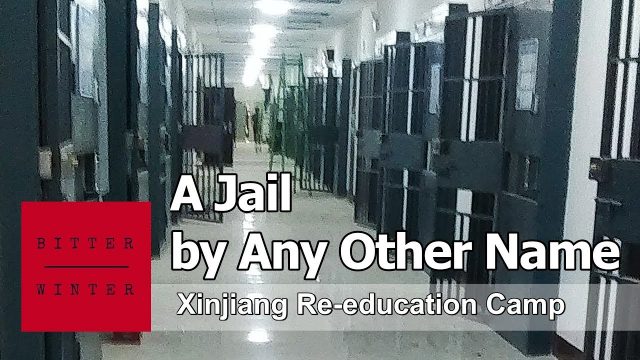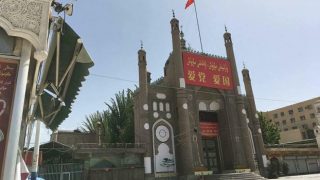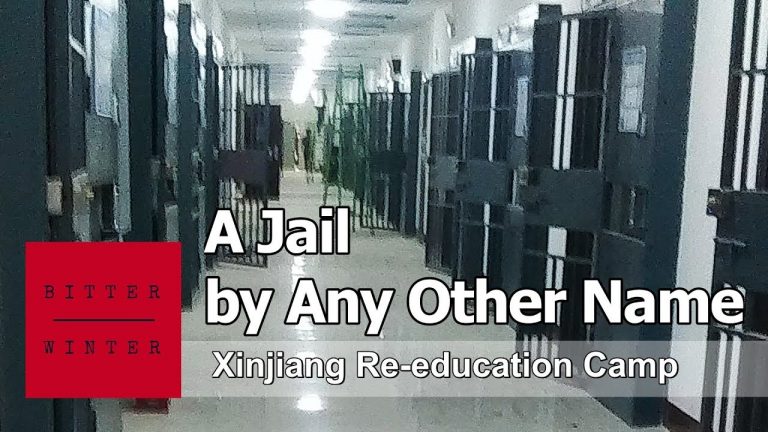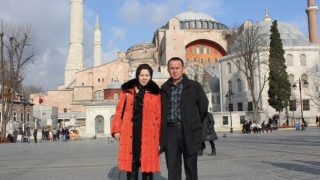
Authorities in northwest China’s Xinjiang Uyghur Autonomous Region (XUAR) are preparing local residents for visits with outside “inspectors” by ordering them to disavow knowledge of “family planning” policies targeting Uyghurs that a recent report equated to genocide, according to sources.
RFA’s Uyghur Service recently received information from an anonymous source who said that authorities in Suydung (Shuiding) township, in Ili Kazakh (Yili Hasake) Autonomous Prefecture’s Qorghas (Huocheng) county, have been holding meetings over the past two weeks to warn residents that people may be visiting the area to inquire about birth control policies.
According to the source, who has knowledge of the region and declined to provide their name for fear of reprisal, police personnel are warning residents in the meetings that they risk fines and even detention in an internment camp for giving “incorrect” responses to the visiting inspectors, who may include both Chinese nationals and foreigners.
The meetings appear to have begun shortly after Adrian Zenz, a senior fellow in China Studies at the Washington-based Victims of Communism Memorial Foundation, published a report in collaboration with the Associated Press in June detailing a dramatic increase in recent years in the number of forced sterilizations and abortions targeting Uyghurs in region.
In his report, Zenz concludes such policies may amount to a government-led campaign of genocide according to the United Nations Convention on the Prevention and Punishment of the Crime of Genocide.
They also come as China’s Foreign Ministry spokesperson Wang Wenbin addressed a question during a regular press briefing in Beijing about France’s recent condemnation of the mass incarceration of Uyghurs and other Muslim minorities in the XUAR, and its demand that independent rights observers be granted access to the region to investigate claims of abuses there.
“We welcome those with a truly objective and fair attitude to visit Xinjiang and see for themselves the real situation and avoid being blinded by these rumors and slanders,” he said, dismissing reports that authorities in the region have held some 1.8 million people in a vast network of internment camps since April 2017.
RFA recently spoke with an officer from the Suydung Township Police Station who confirmed that a colleague was in charge of the preparatory work related to the inspections, and that predominantly Uyghur “assistant police officers are undertaking this work in the villages.”
When asked what residents are being instructed to say to inspectors, the officer said he did not know and referred further questions to those in charge of the meetings.
Ordered to change topic
RFA also spoke with a neighborhood committee chief in Suydung township who provided more information about the meetings, which he said he regularly takes part in.
“The meetings are being held in residents’ homes, one after the other—between 15 and 35 people attend each meeting,” he said.
“They’re teaching people that if inspectors come, [the residents] should answer questions very conscientiously and not say things like ‘we don’t know.’ And they’re also saying that the inspectors will make unannounced visits at their own discretion, so everyone needs to be prepared in their thinking.”
The committee chief said inspectors will come “at different times,” and that higher-level authorities had not provided specific dates or explained where they are coming from, “only that they’re definitely coming.”
“They said that we should say the birth control policy is good, but that we shouldn’t give really detailed answers,” he said.
“They said to say ‘no’ if asked whether [residents] had IUDs (intrauterine devices) inserted.”
Instead, residents should “talk at length” about topics such as free health checks, home construction, and social security.
“They told us we can take up all [the inspector’s] time to talk with us if we talk more about the subsidies we’ve received from them,” he said.
The committee chief said if asked about detained family members, residents shouldn’t say they don’t know why they were interned or where they are.
“They said we should say the government would never have detained them if they hadn’t done something wrong, so they detained them because they made mistakes,” he said.
“We should say they’re getting a good education, that it’s good they’re being educated, and that they had religious extremist ideas.”
‘Potemkin tours’
China in 2019 organized two visits to monitor internment camps in the XUAR—one for a small group of foreign journalists, and another for diplomats from non-Western countries, including Russia, Indonesia, Kazakhstan, and Thailand—during which officials dismissed claims about mistreatment and poor conditions in the facilities as “slanderous lies.”
During the United Nations General Assembly in New York in September, U.S. Deputy Secretary of State John J. Sullivan told the gathering that these trips and the China-friendly accounts they produced were “Potemkin tours in a failed attempt to prove” that the camps were humane training centers.
Reporting by RFA’s Uyghur Service and other media organizations has shown that those in the camps are detained against their will and subjected to political indoctrination, routinely face rough treatment at the hands of their overseers, and endure poor diets and unhygienic conditions in the often overcrowded facilities.
In July last year, after China’s ambassador to the U.N. invited its human rights czar Michelle Bachelet to visit the XUAR to “see for herself” what he called “education training centers” in the region, the Office of the United Nations High Commissioner for Human Rights (OHCHR) told RFA that she would not accept unless given access to the camps on her own terms.
Reported by Shohret Hoshur for RFA’s Uyghur Service. Translated by Elise Anderson. Written in English by Joshua Lipes.
Source: Copyright © 1998-2016, RFA. Used with the permission of Radio Free Asia, 2025 M St. NW, Suite 300, Washington DC 20036. https://www.rfa.org.



